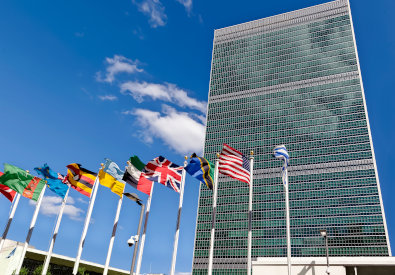The United Nations Office on Drugs and Crime (UNODC) takes a transnational approach to fighting drug crime, organised crime, corruption and terrorism, with global programs and networks of field offices throughout the world.
Five key areas of activity
The work of the UNODC is based around five normative areas of activity: countering the world drug problem, terrorism, transnational organised crime and corruption, and strengthening criminal justice systems.
The war on drugs
- Helping Member States to implement international drug control treaties and prevention strategies.
- Supporting treatment and rehabilitation.
- Analysing and reporting on drug trafficking trends.
The UNODC also assists in more “human” ways, such as helping illicit drug farmers to develop alternative sustainable livelihoods.
Countering terrorism
- Helping Member States to enhance their policy and legislative responses against terrorism.
- Fostering international cooperation to prevent terrorism.
- Building the capacity of national criminal justice systems.
The problem is also addressed at the source through the provision of effective juvenile justice systems, rehabilitation and social reintegration.
Transnational organised crime
These crime types include the trafficking of illicit drugs, weapons, counterfeit goods and humans, as well as emerging crime types such as cybercrime. The UNODC helps to combat these crimes by:
- Helping Member States to implement the UN Convention Against Transnational Organized Crime.
- Collecting and communicating data to inform policy approaches.
- Conducting operations in the field to counter these crimes.
Initiatives are also implemented to raise awareness about the impact of human trafficking on victims and society.
Tackling corruption
- Helping Member States to implement the UN Convention Against Corruption and develop domestic legislation to prevent and counter corruption.
- Promoting good governance, integrity and transparency.
- Enhancing States’ anti-corruption capacities through technical cooperation projects.
- Enhancing international cooperation on extradition and mutual legal assistance.
Strengthening criminal justice systems
- Promoting comprehensive crime prevention strategies.
- Helping to reform prisons.
- Reinforcing the rule of law.
In addition to strengthening crime prevention, this pillar of the UNODCs practice also largely focuses on reinforcing human rights and ensuring that criminal justice systems are fair. This is achieved through promoting the implementation of UN standards such as the United Nations Standards and Norms in Crime Prevention and Criminal Justice.


